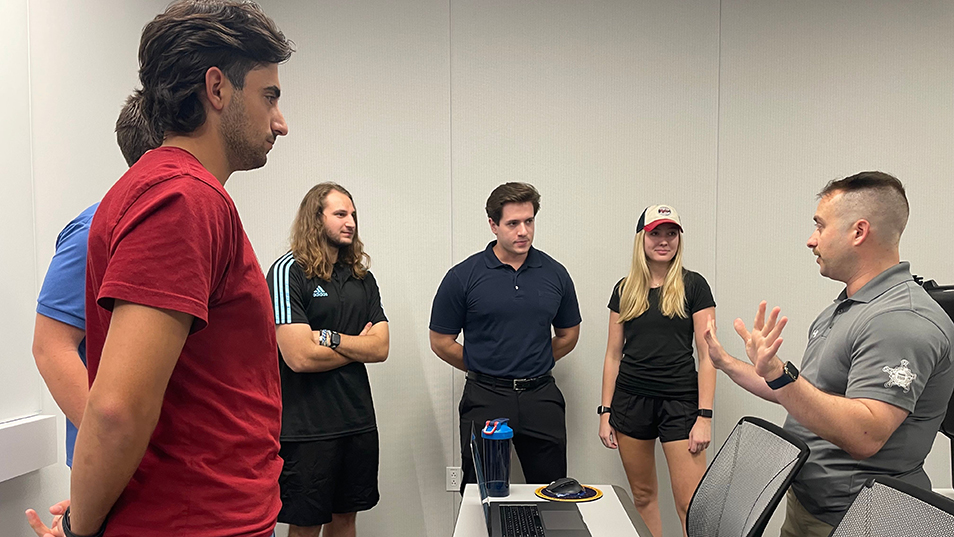Contact us
401 W. Kennedy Blvd.
Tampa, FL 33606-13490
(813) 253-3333
It’s not often that you get an insider’s look into the Secret Service.

Connor Andrews ’24 said the event was important because a lot of people don’t fully understand what the Secret Service does. Photo by Angela Ramos
Connor Andrews ’24 said the event was important because a lot of people don’t fully understand what the Secret Service does. Most think it’s solely to protect the president. He’s the vice president of Root@UT, which serves as a cybersecurity incubator for students to gain technical knowledge in both offensive and defensive security. The club's adviser, Louis Bobelis, part-time faculty in the Department of Information and Technology Management, aids the students with resume building and securing internships.
Angela Ramos, the co-advisor of the group and a cybersecurity lecturer, said the event came together after she met a member of the Secret Service. The agent wanted to talk to students to highlight the work the organization does. Ramos proposed the idea to the club’s student leadership, and they were all interested in the opportunity.
To get involved with Root @ UT, join on Involve or show up to a meeting in ICB 210 on Fridays from 6-8 p.m., Ramos said. The group is open to all majors.
Have a story idea? Contact Brianna Kwasnik, Digital Content Editor/Writer
Read more UT Life stories.
Subscribe to News and UT Life.
More UT News